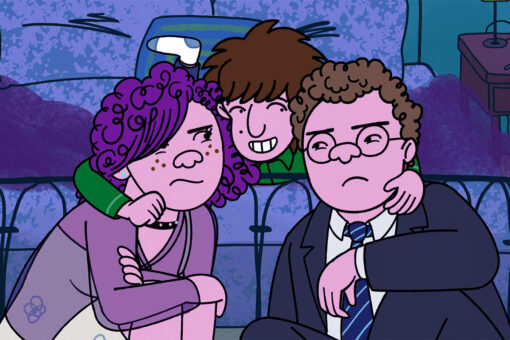I’m not the only Black Jew alive, and I’m alarmed by the amount of the times I feel compelled to remind people of that fact.
As our national conscience has rightfully turned to fighting injustices wherever we see them these past few months, too often I find myself in conversations or debates with people who treat and view me as if I’m the spokesperson for a group of people. Not only is it exhausting, it’s also disappointing and dangerous.
I do, of course, understand why people seek out diverse perspectives when educating themselves about different sociopolitical or cultural issues. But, I also frequently notice that when it comes to engaging with people with unique perspectives and ideas, or just those that differ from their own, many people are satisfied with treating individual people as authorities on issues. They’re comfortable with viewing entire groups of people as monoliths. This is not only an unhealthy practice, it’s a habit rooted in the very erasure these people are trying to address.
When Nick Cannon was trending recently for making anti-Semitic comments, I was inundated with comments and questions from people who wanted input from a Black Jew. Part of me was thankful that people wanted to have deep and transparent conversations about racism, anti-Semitism, and when the two collide. Another part of me knew that many of the people who reached out to me for my thoughts wouldn’t reach out to any other Black Jews or supplement my comments in any meaningful and productive way. I was their token Black Jew, and whatever I said would now become The Official Black Jewish Response — which of course doesn’t exist, because not all Black Jews agree on everything (I mean, have you met Jews?).
My perspective is that of a Black Jew who was once part of an Orthodox community — but left due to extreme racism and constant experiences with microaggressions — and now navigates life as a cultural Jew rather than a religious one. Other factors have informed my perspective as well, including being queer and identifying as a leftist. I’m endlessly inspired by lessons from former rabbis and teachings from religious texts, but my personal relationship to God is complicated. I’m just as motivated by and immersed in spiritual and mystical teachings and traditions passed down from my ancestors in the African diaspora. And while I did study Judaism academically as a practicing religious Jew in the past, my thoughts about current events are deeply informed by non-religious sources of inspiration.
In short: I’m a unique individual with unique experiences that have shaped my perspective into what it is today. I am the authority and spokesperson for my own Black Jewish experience, but not the Black Jewish experience. There isn’t one way to be a Black Jew, nor is there one single experience that fully encapsulates what it is like to be a Black Jew.
That goes for any other identity, for that matter. People with shared identities and similar experiences still live different lives and have unique perspectives. No two people navigate life on Earth in the same way, even if they happen to “check the same boxes.” No group is monolithic and there are so many factors that impact people’s perspectives, especially with respect to their social, political, and cultural beliefs.
So while yes, I appreciate it when people turn to me to have meaningful discussions with them about important topics, especially when they do so to gain clarity or insight about a topic I have personal and unique experience with due to certain aspects of my identity, I do so in the hopes that they don’t let my thoughts speak for an entire group of people — and the hopes that I won’t be the only person whose insight they seek.
When it comes to issues related to anti-Semitism and anti-Blackness, Black Jews can speak to shared experiences regarding both in ways that no one else can, so our testimonies and knowledge should be sought, honored, and respected when these issues arise. But the diversity of opinions within the Black Jewish community also must be recognized.
Honest, empathy-driven communication is key in the process of repairing our world. It’s also key in matters of social justice. Listening to the people at the forefront of any given issue is always the right move, but I sincerely hope after people come to me for insight that they don’t stop there.
Header image design by Emily Burack. Original image by Ponomariova_Maria/Getty Images.



